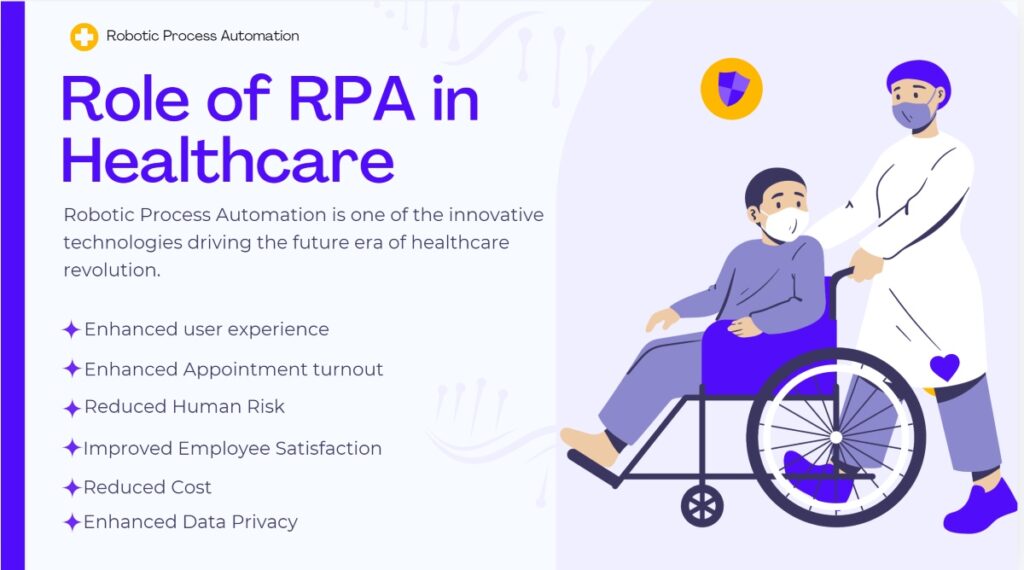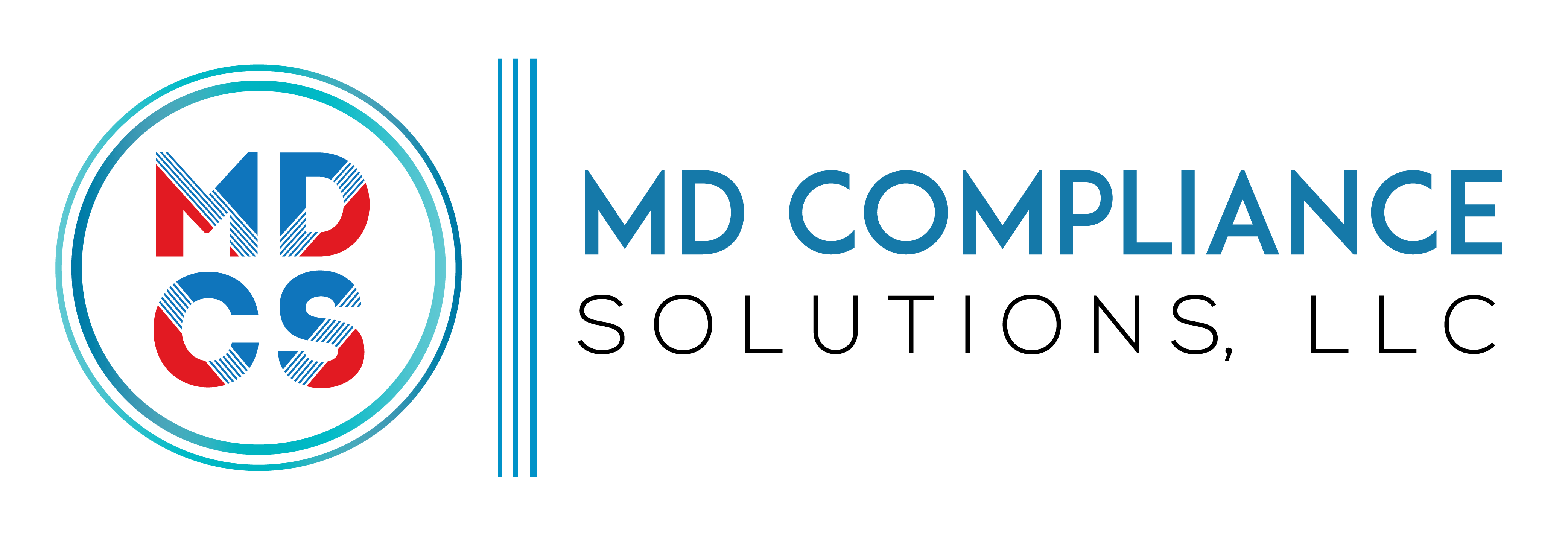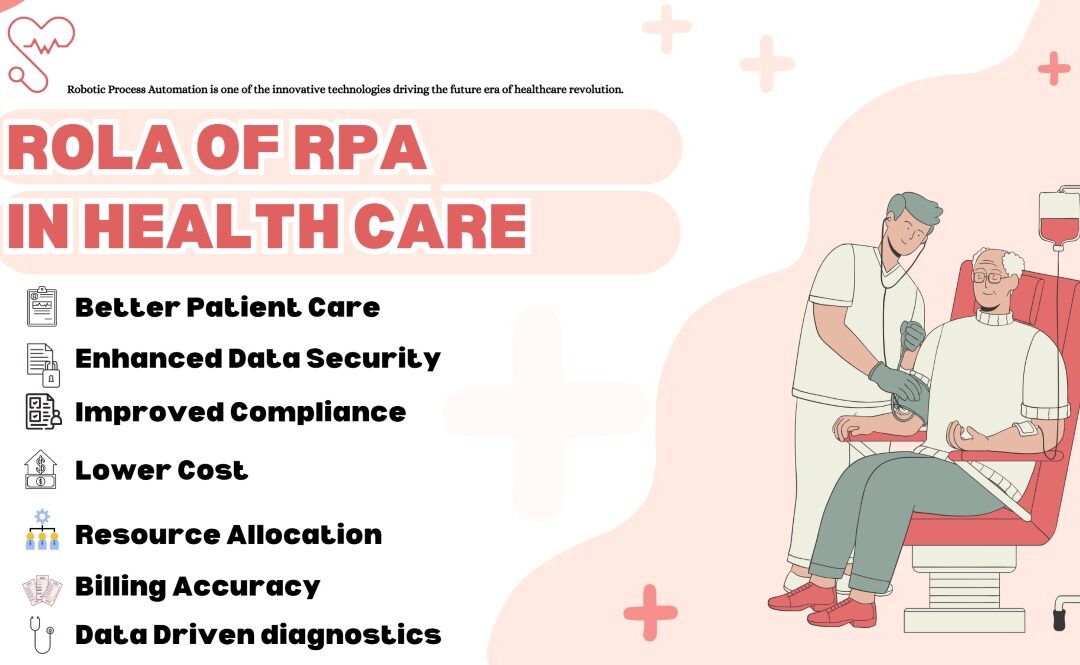Table of Contents
The role of RPA in healthcare is becoming increasingly imperative as healthcare providers search to improve efficiency, reduce costs, and enhance patient care. Advancements in technology are driving a revolution in the healthcare sector that aims to improve patient satisfaction, lower costs, and increase performance. RPA (Robotic Process Automation) is one of the innovative technologies driving the future era of healthcare revolution. In recent times, the AI role has significantly increased, which enables RPA automation of time-consuming and repetitive work-related tasks, including medical billing, claims processing, and patient data entry.
Healthcare specialists may lose their valuable resources and hectic schedules if those tasks are automated. Instead, those resources might be used to give patients higher-quality care. Moreover, robotic process automation ensures that vital records are processed and recorded correctly while reducing human error. Robotic Process Automation integration into the healthcare industry, taken as a whole, points to a bright future for improving the exceptional cost and accessibility of healthcare services.
An Understanding Robotic Process Automation (RPA)
What Does RPA Mean for the Healthcare Sector? Using advanced software robots, or “bots,” to automate repetitive, rule-based tasks inside regular corporate processes is known as RPA. One innovative development in healthcare is robotic process automation. By using digital bots to handle repetitive duties, it frees up healthcare staff to concentrate on patient care.
- RPA functions in the healthcare industry by using rule-based procedures, emulating human activities, and interfacing with software systems already in place. From data entry and claims processing to appointment scheduling and invoicing, these bots are capable of doing a wide range of jobs. Recurring administrative tasks can be completed much faster. Thus, using RPA’s capacity to increase accuracy, simplify processes, and cut down on time.
- In light of the requirement for performance and cost-effectiveness, the use of RPA services in the healthcare industry has increased dramatically. Applications for robotic process automation range widely, from front-office to back-office tasks.
- RPA automates the procedure in accordance with preset rules, making appointment scheduling smooth and error-free. It ensures best use of available resources and reduces scheduling conflicts. Automating the patient registration process not only promotes accuracy but also improves the patient onboarding experience. RPA ensures all patient data is entered into the device completely and accurately. In addition, chatbots and digital assistants driven by RPA are being utilized more frequently in the healthcare industry to answer questions from patients, convey details about promotions, and rearrange appointments.
- RPA is quite helpful in the difficult and time-consuming work of processing claims. In a fraction of the time, it would take a human to complete an equivalent amount of work, bots can verify claims, check for errors, and update information. In the earlier processes, billing and invoicing entail a number of repetitious processes and errors. However, precise handling by RPA minimizes errors and speeds up the billing cycle. RPA automates the arduous task of data input, ensuring patient current accurate records are easily accessible when needed.
Problems and Solutions:
Despite all of its benefits, RPA’s application in the healthcare industry is not without its challenges and problems. Reaching the full potential of RPA in healthcare requires tackling them head-on.
- Legacy systems are deployed in a lot of healthcare facilities. For smooth compatibility, careful planning and customization are necessary when integrating RPA with those structures, which might be challenging.
- Ensuring the safety of sensitive patient data is crucial, especially in the healthcare sector. To protect patient privacy, RPA deployments must follow all applicable information security regulations.
- Like any revolutionary idea, RPA can also encounter opposition from medical professionals used to conventional procedures. The key to overcoming this reluctance and guaranteeing a successful adoption is providing thorough training regarding RPA applications and modifying management approaches.
Meaning of RPA in Medicine:
- The way that RPA in healthcare is changing the clinical landscape is reflected in the definition of RPA in medicine. These days, the focus is not only on automating processes but also on streamlining healthcare procedures, reducing errors, and enhancing patient care.
- Healthcare processes are facing increasing operational issues as a result of the industry’s fast digitization. RPA shows up as a potent way to get through these difficult circumstances, control operations, and ensure that everyone receives care that is more precise and efficient.
- High precision is required in the healthcare industry, especially when handling clinical data and patient health records. RPA ensures accurate and trustworthy medical data by removing the possibility of human mistake in data entry and information access.
- In the healthcare industry, regulatory standards compliance is crucial. By automating procedures in accordance with established recommendations, RPA greatly reduces the likelihood of regulatory infractions and assists healthcare organizations in adhering to compliance standards.
- Healthcare costs are a global issue. Ever increasing cost is a massive challenge to tackle. In the healthcare sector, robotic process automation (RPA) controls processes, minimizes manual labor, and eventually lowers operating expenses. Healthcare practitioners are able to distribute resources more wisely because of this cost-effectiveness.
- RPA is good at controlling intricate processes by automating tasks that would otherwise take up a lot of time and resources. This not only expedites the job but also ensures a continuous and standardized completion of duties involving data entry, appointment scheduling, and claims processing.
- By delegating routine administrative chores to RPA, healthcare workers can focus their attention on patient-focused activities. The effective distribution of resources like this advances healthcare delivery across the globe.
- With the help of RPA, tasks that typically take hours or days to accomplish can be finished in a matter of seconds. Improved operational efficiency is a result of shorter response times in areas of risk, including patient admissions and claim processing.
RPA’s Effect on Healthcare Cost Management
In the healthcare industry, financial sustainability is a constant goal. RPA is essential to achieving financial stability in the healthcare industry since it may increase productivity and lower operating costs.
- Repetitive operational tasks are considerably reduced with RPA by automating them. As a result, operational expenses are significantly reduced, enabling healthcare companies to more wisely manage their funds.
- Healthcare organizations may suffer significant financial losses as a result of inaccurate billing practices. RPA guarantees billing accuracy by decreasing errors in invoicing, claims processing, and payments, resulting in improved revenue cycle control.
- RPA enables healthcare organizations to strategically manage their resources, putting human capital to use where it is most needed—requiring empathy, critical thinking, and human knowledge—while automating repetitive tasks with ease.
Future with RPA
Robotic Process Automation (RPA) is a technology that is here to stay, and the healthcare industry will likely see a rapid expansion of its use. With advancements in artificial intelligence (AI) and machine learning (ML) further enhancing its capabilities, the future of RPA in healthcare is full of exciting possibilities.
- Healthcare personnel will be able to transition from rule-based automation to intelligent decision-making through the use of RPA in conjunction with AI and ML technologies. By analyzing styles, adjusting to modifications, and making informed decisions, bots can become more successful and efficient.
- RPA has the potential to be extremely important in advancing virtual healthcare services as telemedicine gains more and more acceptance. For long-distance consultations, bots can help with appointment scheduling, follow-up correspondence, and even gathering and analyzing patient demographic data.
- RPA, integrated with predictive analytics, can transform healthcare by recognizing patterns and trends in patient data. This can assist healthcare providers in managing potential health issues before they worsen, leading to proactive and individualized patient treatment.
Wrap Up
In the healthcare industry, robotic process automation services are not only a technology solution but a robust force that is revolutionizing the field. RPA in healthcare is bringing revolution in how services are provided and managed, from increasing accuracy and compliance to optimizing workflows and cutting costs.
The digital transformation and combining RPA with cutting-edge technologies like AI and ML present even more prospects. This harmonic alliance enables predictive analytics, sound decision-making, and personalized patient care.
System integration and data security are two big problems that should be addressed, but the possible rewards outweigh the disadvantages. By embracing RPA, healthcare organizations put themselves at the vanguard of a digital transformation that puts the patients first and improves efficiency, and accuracy. Unquestionably, robotic process automation’s transformational potential holds great promise for the future of the healthcare industry.
Read More: Understand the Frequently Used Physical Therapy Modifiers?

Reference 1,

